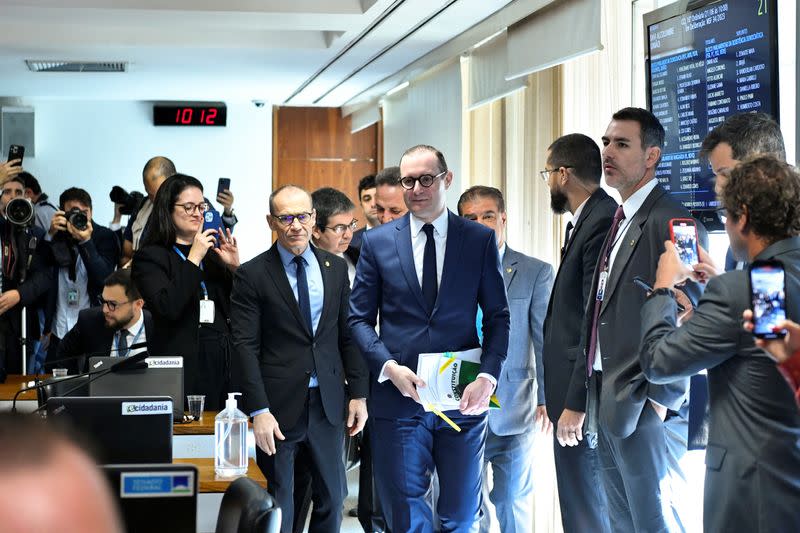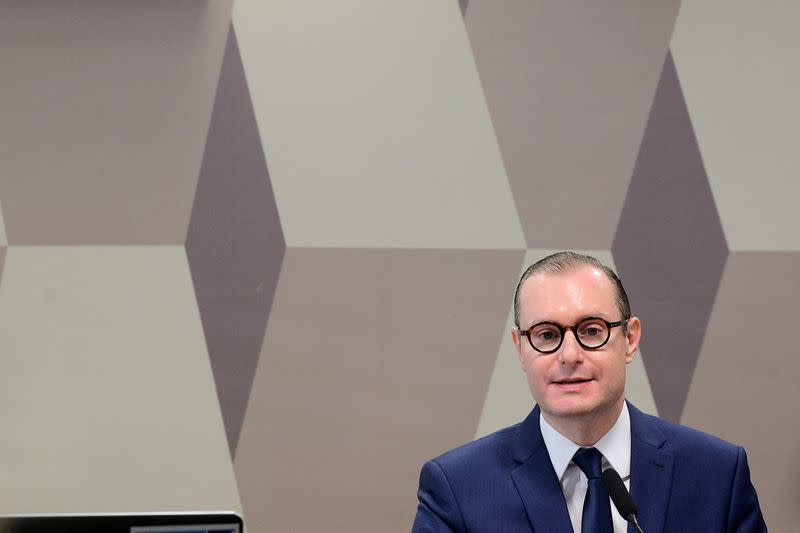Brazil Senate confirms Lula's ex-lawyer for Supreme Court seat
- Oops!Something went wrong.Please try again later.
BRASILIA (Reuters) -Brazil's Senate on Wednesday confirmed the appointment of Cristiano Zanin, President Luiz Inacio Lula da Silva's former defense lawyer, to serve on the country's Supreme Court.
Zanin, 47, will be the youngest justice on the 11-member court and could remain there for 28 years.
Zanin, a partner at law firm Zanin Martins Advogados, gained recognition in recent years for defending Lula against corruption charges, helping to throw out a conviction at the Supreme Court and release him in 2019 after 580 days in jail.
The Senate voted 58-18 to confirm Zanin. Support for Zanin's candidacy was helped by his role defending Lula against charges in the "Car Wash" investigation, which landed dozens of politicians in jail for graft tied to contracts with state firms. That probe has come under fire in recent years amid allegations of political motivations and procedural lapses.
"He is an anti-Car Wash symbol, and that guaranteed his success," said Andre Cesar, an analyst at Hold Assessoria political consultancy in Brasilia.
Zanin will replace Justice Ricardo Lewandowski, who retired in April, making him Lula's first nominee to the top court since he took office in January for a third nonconsecutive term.
The new justice holds a law degree from the Pontifical Catholic University of Sao Paulo and has previously taught law at the FADISP college.
Zanin describes himself as a specialist in bet-the-company litigation and "lawfare," or the misuse of legal proceedings to attack or intimidate opponents. He co-founded a think tank, the Lawfare Institute, and has published books on the topic.
He is married to law office partner, Waleska Zanin Martins, whose father Roberto Teixeira was Lula's lawyer for decades.
Zanin successfully defended the leftist leader in a series of corruption cases, including the most important one overseen by former judge Sergio Moro, who convicted Lula of receiving bribes. Lula denied the charges and said he was the target of political prosecution to stop him from running in the 2018 elections.
(Reporting by Ricardo Brito and Maria Carolina Marcello in BrasiliaWriting by Anthony BoadleEditing by David Gregorio and Matthew Lewis)


